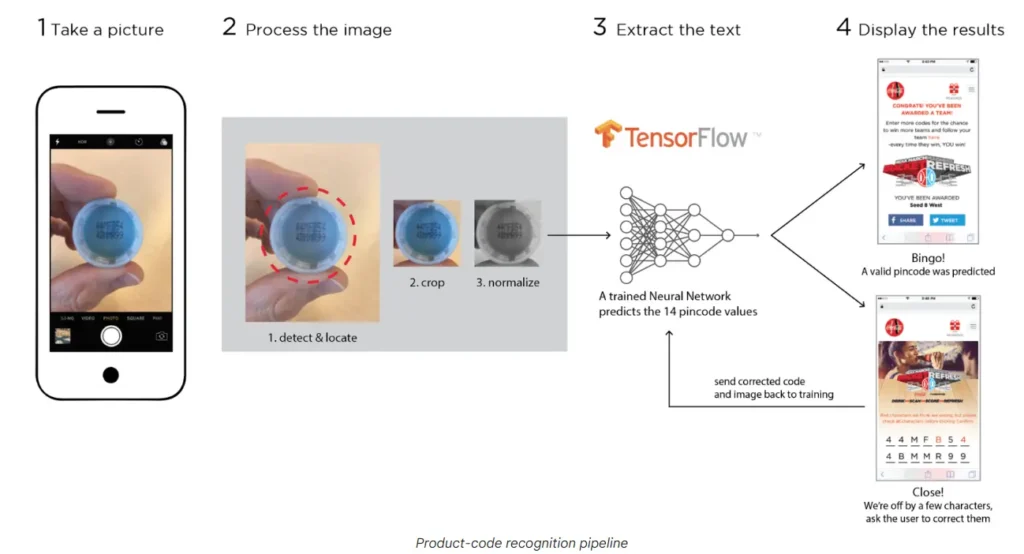Imagine a world where machines learn from experience, not just follow instructions. In a world where computers can not only play chess but also become grandmasters by analyzing millions of past games, that’s the power of machine learning, a field where algorithms transform from programmed puppets into students of the digital universe. In this blog, we’ll cover some interesting topics where data becomes the teacher, algorithms are the eager pupils, and the possibilities for innovation are truly limitless. Buckle up, because we’re about to explore the cutting edge of artificial intelligence, where machines are learning to think for themselves!
As ML and related technologies such as natural language processing become more popular in contemporary work processes, it is crucial to carefully consider ethical principles that distinguish humans from robots. Currently, machine learning has reached a stage where it is capable of substituting people in numerous complex activities requiring intelligence. Let’s look at the role machine learning tools play in e-commerce and different industries.
In this blog, we’ll delve into the world of machine learning in e-commerce and other industries.
- The ways machine learning can personalize the customer journey are numerous.
- How to leverage ML for smarter product recommendations
- Discover the secrets of data-driven marketing with machine learning.
- Practical tips and tools to get you started with e-commerce machine learning
Table of Contents
ML’s role in different sectors
There are an infinite number of possible uses for machine learning, which is rapidly expanding. Machine learning will revolutionize many industries in the coming years, including manufacturing, retail, fashion, electronics, and healthcare.
Machine learning is rapidly transforming industries across the board. This powerful technology allows computers to learn from vast amounts of data, enabling them to identify patterns, make predictions, and automate tasks with ever-increasing accuracy. From streamlining manufacturing processes to personalizing customer experiences, machine learning is fundamentally changing how businesses operate and industries function. In this blog, we will cover the multifaceted role of machine learning in various sectors, highlighting its impact and potential for future advancements.
ML in e-commerce
A company’s decision-making process can greatly benefit from data-driven insights derived from massive amounts of data. Businesses are able to make better decisions and acquire analysis of their choices’ outcomes almost instantly when they have access to reliable and accurate insights. Companies can use this data to their advantage in the market.
Knowledge is the ultimate weapon in e-commerce. But with so much data bombarding you daily, how do you stay ahead of the curve and convert those clicks? Enter machine learning (ML), the secret weapon of e-commerce organizations everywhere.
ML isn’t some mystical space magic; it’s a practical toolkit that helps you understand your customers on a whole new level. Imagine anticipating their needs before they even know them, recommending products they’ll love, and personalizing their experience like a mind reader. That’s ML’s power, and it’s about to transform your e-commerce business from a flickering spark to a blazing lightsaber of success.
Machine learning (ML) is rapidly transforming our world, and its impact on creativity is a hot topic. With tools like ChatGPT generating art and text, some worry that these advancements signal the end of human creativity. This isn’t a battle between humans and machines, but rather the dawn of a new era of collaboration.
In this blog, we’ll explore how ML tools are becoming powerful extensions of human creativity, not replacements. We’ll delve into the exciting possibilities that arise when we combine human ingenuity with the vast potential of machine learning. The rise of machine learning tools like ChatGPT has sparked a conversation about the future of human creativity. Some fear AI’s ability to generate art and writing signifies its end. But while AI has its strengths, it can’t replicate the human touch in leadership or complex decision-making. The key lies in harnessing the synergy between human creativity and machine learning to unlock even greater possibilities.
The world of e-commerce is a fast-paced one, constantly adapting to new technologies and customer demands. One of the most exciting advancements in recent times is the rise of machine learning (ML) tools. These intelligent technologies are transforming the way we shop online, creating a more personalized and efficient experience for both businesses and consumers.
We’ll investigate the following uses for these tools:
- Customize your shopping experience by imagining personalized product recommendations or targeted marketing campaigns that align with your interests. ML has made this a reality.
- Boost sales and conversions: By analyzing vast amounts of data, ML can predict customer behavior and optimize everything from product placement to pricing strategies.
- Revolutionize customer service: Chatbots powered by ML can provide real-time support, answer questions, and even resolve issues—all without the need for a human agent.
- Optimize operations and logistics: From inventory management to fraud detection, ML is streamlining back-end processes for e-commerce businesses, leading to greater efficiency and cost savings.
Machine learning statistics:
- AI in E-commerce Leadership: E-commerce is one of the leading adopters of AI, with some studies suggesting 84% of businesses are actively integrating AI solutions or prioritizing them. (Source: Master of Code Global).
- Revenue Boost: Integrating AI into marketing and sales can lead to a significant increase in revenue. McKinsey reports that 79% of respondents saw a revenue increase of at least 20% thanks to AI-based business strategies (source: Master of Code Global).
- Metrics Improvement: Businesses using ML tools can expect a 25% improvement in key metrics like customer satisfaction and revenue.
- Conversion Rate Increase: Machine learning can significantly boost conversion rates by optimizing search results, delivering personalized recommendations, and streamlining the checkout process. Studies suggest these improvements can be substantial.
- Chatbot Efficiency: Using an AI chatbot, Luxury Escapes, an e-commerce platform, increased their response rate on retargeting efforts by a whopping 89%.
There are various ways to use machine learning in e-commerce
Price optimization: ML goes beyond basic pricing strategies. It analyzes vast amounts of data to uncover hidden patterns and customer behaviors, allowing you to set prices that maximize profits and conversions. Here’s how:
- Understanding Customer Price Sensitivity: ML algorithms analyze historical sales data in conjunction with factors such as competitor pricing and seasonal trends. This reveals how price changes impact customer demand, allowing you to set prices that are both competitive and profitable.
- Personalized Pricing Strategies: Imagine tailoring prices to individual customers. To create personalized pricing offers, ML can take into account factors such as purchase history, browsing behavior, and demographics. This can lead to increased customer satisfaction and loyalty.
- Dynamic Pricing in Real Time: Gone are the days of static prices. ML allows for adjustments based on real-time market conditions. For instance, you can adjust prices during peak demand periods or in response to competitor fluctuations.
- Optimizing Promotions and Discounts: Not all discounts have the same impact. ML can help you determine the most effective discounts and promotions to maximize sales without sacrificing margins.
Forecasting
- Improved Decision-Making: Accurate forecasts empower you to make informed decisions about everything from inventory management to marketing campaigns.
- Reduced Risk and Uncertainty: By anticipating future trends, you can proactively mitigate risks and capitalize on potential opportunities.
- Enhanced Efficiency and Profitability: Optimized resource allocation based on accurate forecasts leads to increased efficiency and improved bottom lines.
- Continuous Learning and Improvement: ML models continuously learn from new data, constantly refining their forecasts and becoming more accurate over time.
Inventory management
- Reduced Stockouts: Accurate forecasts and automated replenishment minimize stockouts, leading to happier customers and increased sales.
- Lower Inventory Costs: By optimizing stock levels, you tie up less capital in excess inventory, improving your cash flow.
- Improved Efficiency: Automated processes and data-driven insights streamline inventory management, saving time and resources.
- Enhanced Decision-Making: Based on reliable data, ML allows you to make informed decisions about ordering, warehousing, and product assortments.
Customer experience
- ML empowers you to understand your customers on a deeper level, anticipate their needs, and proactively address them. Here’s how ML revolutionizes the customer experience:
- Personalized Recommendations: Gone are the days of generic product suggestions. ML algorithms analyze customer purchase history, browsing behavior, and even demographics to recommend products tailored to each individual’s needs and preferences. This increases customer satisfaction and leads to more conversions.
- Imagine a world where proactive customer support resolves customer service issues before they even arise. ML can analyze customer interactions and identify potential pain points. This allows you to proactively provide support or offer solutions, reducing frustration and enhancing customer satisfaction.
- Chatbots that Actually Get You: Say goodbye to clunky, scripted chatbots. ML-powered chatbots can understand natural language and respond to customer inquiries in a more conversational and helpful way. This improves the customer experience and frees up human agents for more complex issues.
- Sentiment Analysis: ML can analyze customer reviews, social media posts, and other forms of feedback to understand their sentiment towards your brand and products. This allows you to identify areas for improvement and proactively address customer concerns.
- Predictive Search: Imagine a search function that reads your mind (almost). ML algorithms can anticipate what customers are searching for based on their past behavior and current search terms. This delivers more relevant search results faster, reducing frustration and leading to a more satisfying shopping experience.
Product recommendations
- Customer Preferences: ML analyzes a vast array of data points, including purchase history, browsing behavior, demographic information, and even social media interactions. This creates a rich customer profile, allowing ML to recommend products that align perfectly with individual preferences.
- The Power of Context: ML considers a customer’s shopping journey in context. For instance, if someone is browsing running shoes, the recommended products might include socks, running apparel, or complementary fitness trackers. This contextual awareness leads to highly relevant recommendations.
- Real-Time Personalization: Recommendations aren’t static. ML influences real-time user behavior, such as recently viewed items and abandoned carts. This allows for dynamic recommendations that adapt to the customer’s evolving needs within a single session.
- Combating Recommendation Fatigue: Generic recommendations can turn customers off. ML filters out irrelevant suggestions and focuses on products that genuinely pique a customer’s interest. This reduces recommendation fatigue and keeps customers engaged.
- Site search.
- Customer churn.
- Fraud detection and prevention.
Machine learning in different industries
- Retail: Personalized Shopping and Demand Forecasting:
Imagine a virtual shopping assistant who remembers your preferences and suggests items you’ll love. Machine learning (ML) algorithms power this magic!
Retail platforms analyze vast amounts of customer data using ML. Tools like TensorFlow help build models that sift through this data, identifying patterns and predicting user preferences. As you browse and purchase, real-time data processing keeps these suggestions fresh, constantly adapting to your evolving needs.
The retailer benefits from highly relevant recommendations that not only enhance your shopping experience but also lead to increased satisfaction and boosted sales.
For example, Coca-Cola leverages TensorFlow, an open-source machine learning framework, to power a frictionless experience in their loyalty programs. Here’s the gist: Traditionally, users had to manually enter complex proof-of-purchase codes on mobile devices, hindering engagement. Coca-Cola built a custom optical character recognition (OCR) system using TensorFlow and convolutional neural networks (CNNs).
This system allows users to simply scan unique codes on bottle caps through the Coca-Cola app, streamlining the process and boosting participation.

Source: Tensor Flow
- Challenge: recommending relevant products and predicting future demand for millions of items.
- The tool includes recommendation engines and demand forecasting models.
- For example, Myntra uses ML algorithms to suggest personalized clothing and accessories based on a user’s browsing behavior and purchase history. This improves customer satisfaction and increases sales.

Source: Myntra
- Finance: Fraud Detection and Credit Scoring (Finology)
- Challenge: identifying fraudulent transactions and assessing creditworthiness in real-time.
- Anomaly Detection and Risk Assessment Models are two tools.
- Example: Fintech company Finology utilizes machine learning to analyze financial data and detect fraudulent activity in loan applications. This protects both borrowers and lenders.
- PhonePe uses ML for fraud detection and risk management, protecting users from unauthorized transactions and ensuring a secure payment environment.
- Paytm leverages ML for personalized financial product recommendations, suggesting investment options or loan products based on user profiles and financial needs.

Source: Paytm
- Healthcare: Disease Prediction and Drug Discovery (Pharmeasy)
- Challenges include early disease detection and accelerated drug discovery processes.
- Tools: Medical Imaging Analysis and Drug Discovery Platforms.
- Example: Pharmeasy is exploring ML for analyzing medical images to identify potential health risks early on. This could lead to earlier intervention and improved patient outcomes.
- Manufacturing: Predictive Maintenance and Quality Control
- Challenge: preventing equipment failures and ensuring product quality.
- Tools: predictive maintenance and AI-powered quality inspection systems.
- Tata Motors, for example, is implementing ML for predictive maintenance in their factories. This helps them anticipate potential issues with machinery and prevent costly downtime.
- Agriculture: Smart Farming and Yield Optimization (ITC)
- Challenge: optimizing crop yields and resource utilization in agriculture.
- Tools: Weather Prediction Models and Precision Agriculture Tools.
- For example, ITC uses ML to analyze weather data and predict potential crop threats. This allows farmers to take preventive measures and maximize their yields.
- Fashion
Nike (Athletic Apparel): Employs ML for product recommendations based on browsing behavior, purchase history, and athletic goals entered by users on their app.
Nykaa (Beauty & Fashion E-commerce) uses ML to power virtual try-on experiences for cosmetics and eyewear, allowing customers to see how products would look on their faces or address their vision needs.
- Electronics
The electronics industry thrives on innovation, and unsurprisingly, machine learning (ML) is becoming a key player in electronics e-commerce. Here’s how ML is transforming the way consumers shop for electronics online:
Flipkart (e-commerce marketplace): This e-commerce giant personalizes product recommendations across all categories using ML algorithms that analyze vast amounts of customer data and buying habits. Additionally, they provide a ML-powered “Voice Assistant” feature to enhance the hands-free shopping experience.
Conclusion
Machine learning (ML) is transforming e-commerce by enhancing the customer experience. ML algorithms personalize the shopping journey by recommending products, targeting advertising, and offering relevant search results. Additionally, ML-powered AI chatbots can answer customer queries and provide real-time assistance.
In terms of data-driven decisions, ML allows businesses to forecast demand trends and optimize inventory management. Machine learning tools can also analyze market data and customer behavior to suggest optimal pricing strategies.
Finally, machine-learning tools improve business efficiency and growth. ML algorithms can identify fraudulent transactions and automate repetitive tasks, freeing up resources for other areas. Overall, machine learning offers a strategic advantage in the competitive world of e-commerce.
For more information, please contact us at info@paxcom.net.














